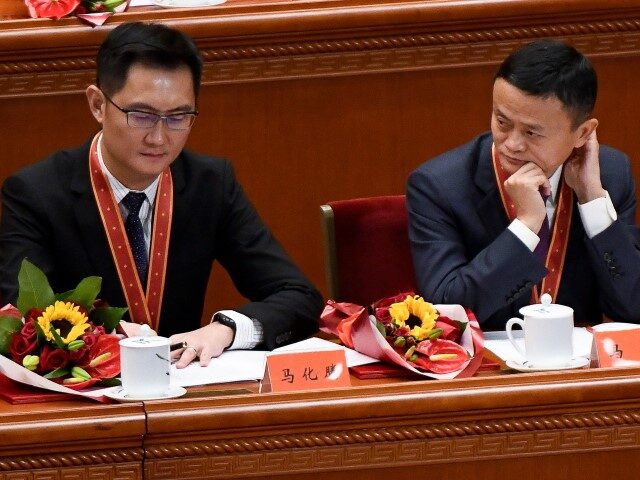The Chinese Communist Party is pressing privately-owned businesses to make big investments in infrastructure projects, a strategy that looks suspiciously like an attempt to grab private assets as local governments across China run out of funds due to a slowing economy and a looming real estate crisis.
Radio Free Asia (RFA) reported on Monday that the Communist government wants private companies to become “deeply involved” in joint ventures with state-owned corporations to develop infrastructure projects that would supposedly “stimulate domestic demand and reboot the flagging economy.”
“The idea is to hand out ‘franchises’ for projects that could benefit from private-sector assets and know-how, under a scheme that Beijing is hoping will bring local government finances ‘into the sunshine’ and ‘curb new, hidden debt carried by local governments,’” RFA said, quoting Chinese State Council guidelines.
Skeptical analysts noted this vision of public-private partnerships building everything the “public” government wants because it might eventually help the “private” partners make a little money, sounds a lot like the ruinous centrally-planned economy China seemingly escaped from with the economic reforms of the 1980s.
Chinese private business owners could not help noticing their government “partners” are holding ominous regulatory whips and muttering about how only “Marxist theory” can tame China’s “unruly” financial sector. Being called “unruly” by a Communist means you’re about to get ruled, good and hard.
One of the alarming things about the crisis in China’s property market is that local governments obtain most of their revenue from land-transfer fees and other real estate transactions. When the property market went cold, a hefty chunk of local government income disappeared, and provincial officials have either been sinking deeply into debt, or raiding other funds to get the money they need.
Massive street protests broke out in two major Chinese cities in February after the city government raided insurance funds for cash, then announced huge benefit cuts. The authorities dealt with that crisis by tossing masses of “White Hair” retiree protesters in jail.
RFA noted some of the infrastructure partnerships seem like relatively safe bets that might not have trouble attracting private investors, such as oil rigs, while others are less profitable or riskier affairs like logistics hubs and sports stadiums.
For the projects deemed most important to “the national economy and people’s livelihood,” private partners will be given only tiny minority stakes, but they face crushing penalties for failing to deliver what the Chinese government demands.
“In the past, when there have been disputes between state-owned enterprises and private companies, the private companies have lost out due to the imbalance of power. As soon as a dispute occurs, the assets of private enterprises will be swallowed up by state-owned enterprises,” cautioned commentator Fang Yuan.
Another commentator, Si Ling, described China’s moribund state-owned enterprises as “the hungry children of the Chinese government, who cry and have to be fed milk.”
With the post-pandemic economy sputtering, private enterprises will be expected to provide the milk – and if they balk at the demand, they will be demonized as greedy capitalists who refuse to “give something back” to the society that made them rich.
Reuters reported Tuesday that the Chinese central government ordered local officials to begin trimming back “problematic” public-private partnership projects in October. The government also implemented a system for Beijing to review new projects instead of giving local officials a budgetary allowance to spend as they see fit.
“Projects designated as ‘problematic’ are those riddled with irregularities including in which local government financing vehicles (LGFVs) posed as the ‘private’ partner, spurring excessive debt accumulation,” a source told Reuters.
These steps were taken to control “ballooning” local debt, which was said to have grown out of hand once local governments realized they could hide the extent of their spending binges by using public-private partnerships.
As of the last reliable figures from the end of 2022, China had over 14,000 active public-private partnership projects, valued at over $2.87 trillion, which is more than the national economy of France.

COMMENTS
Please let us know if you're having issues with commenting.